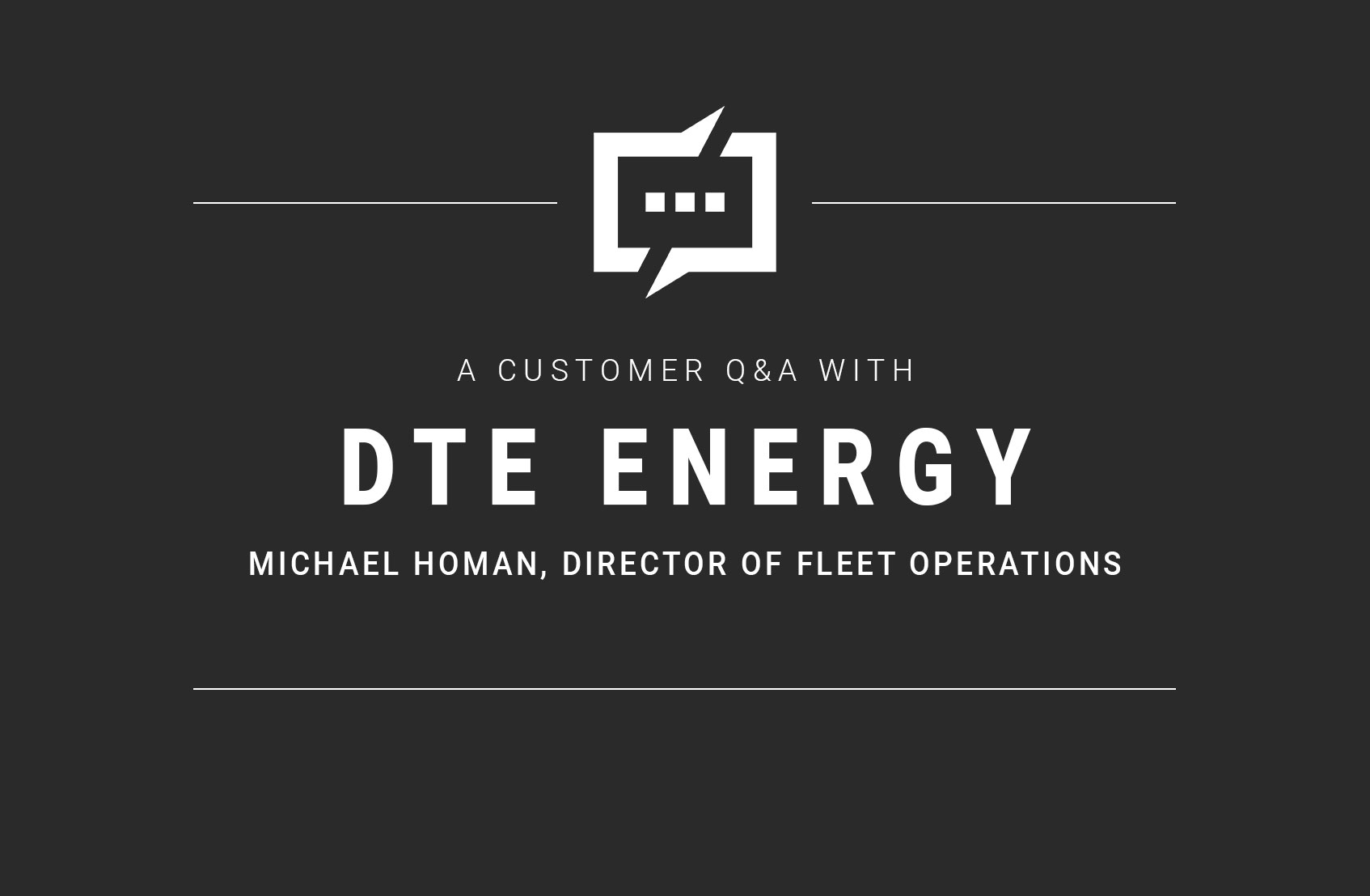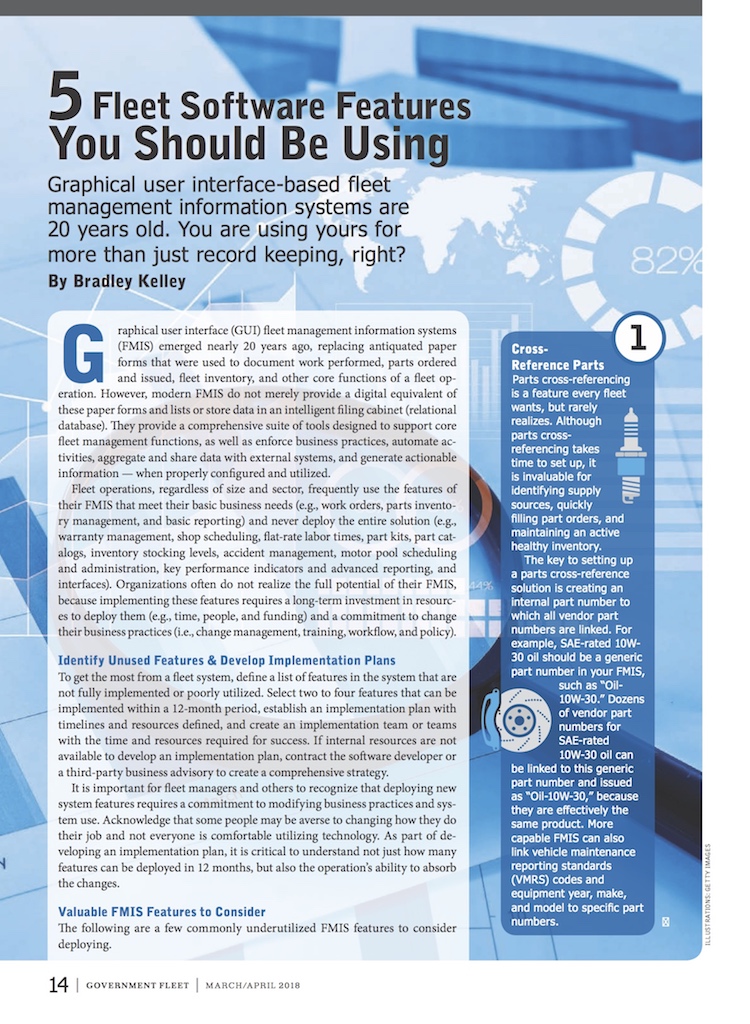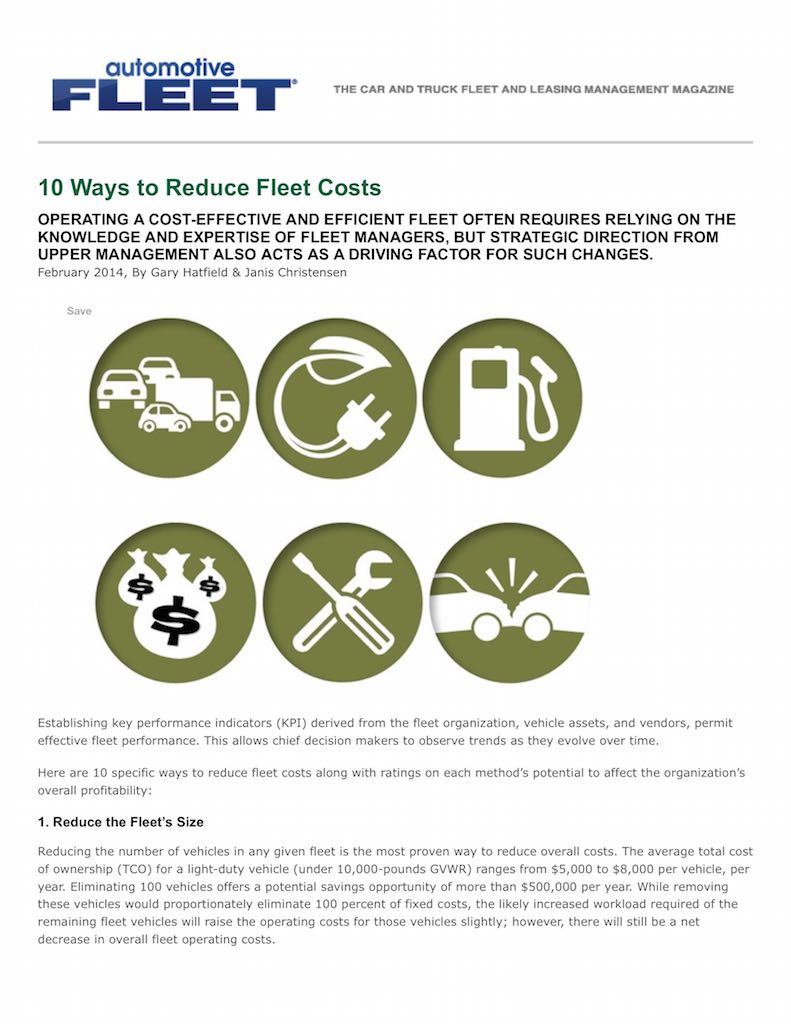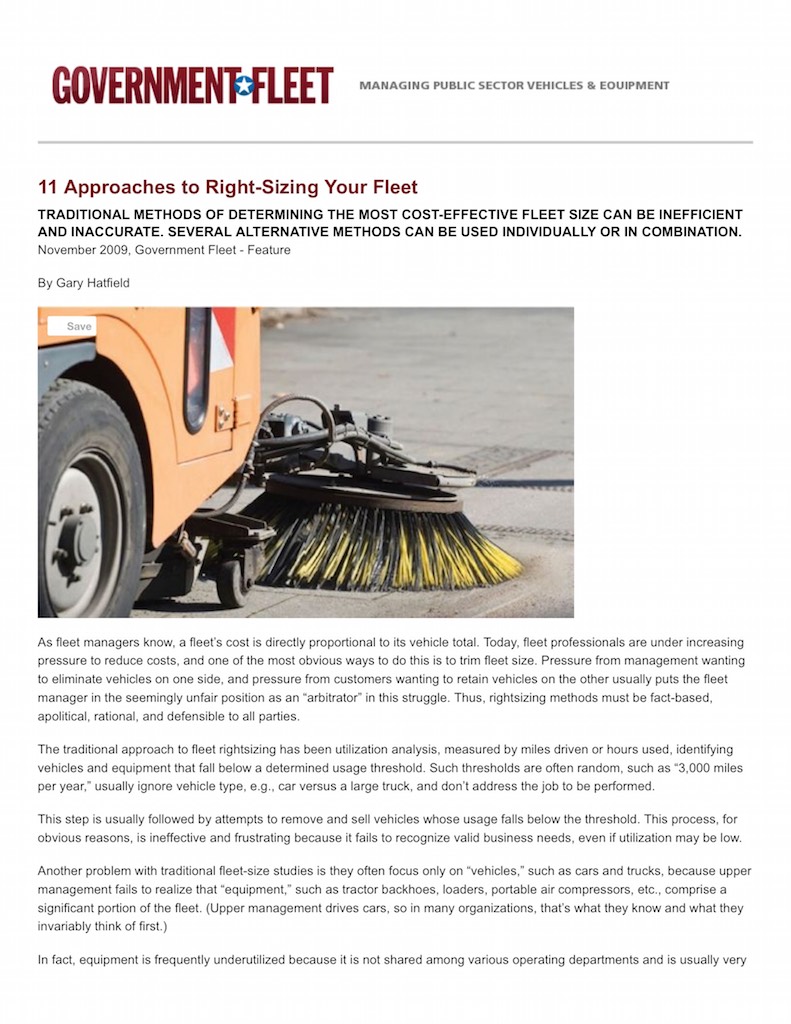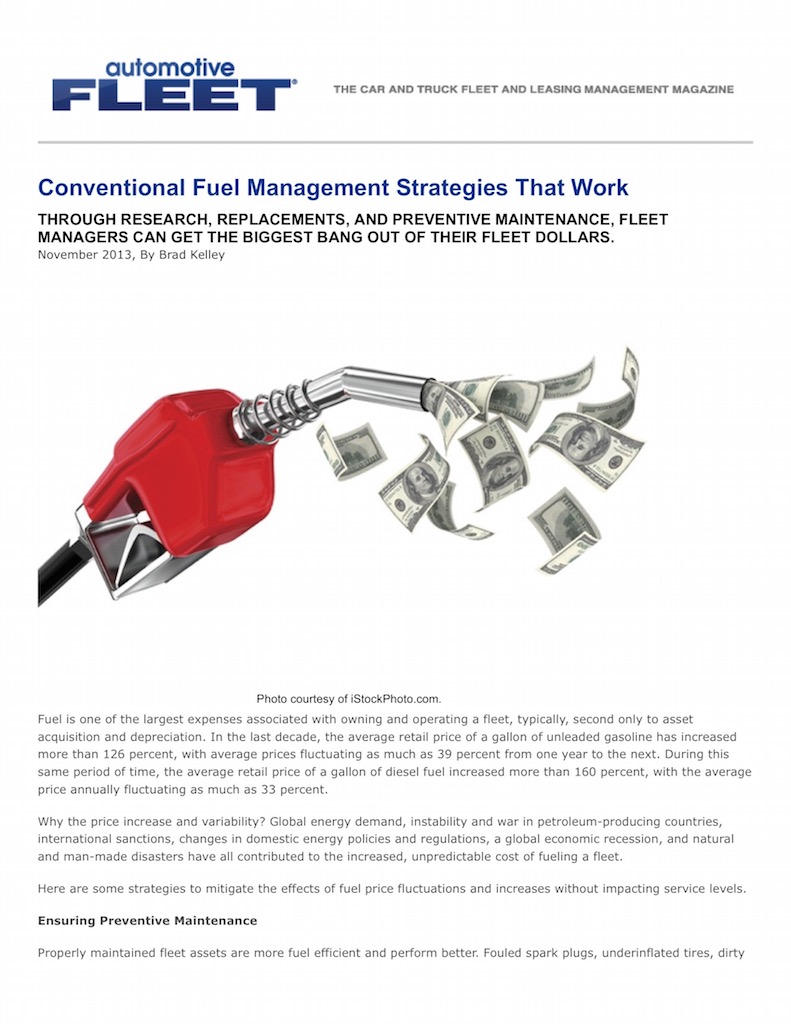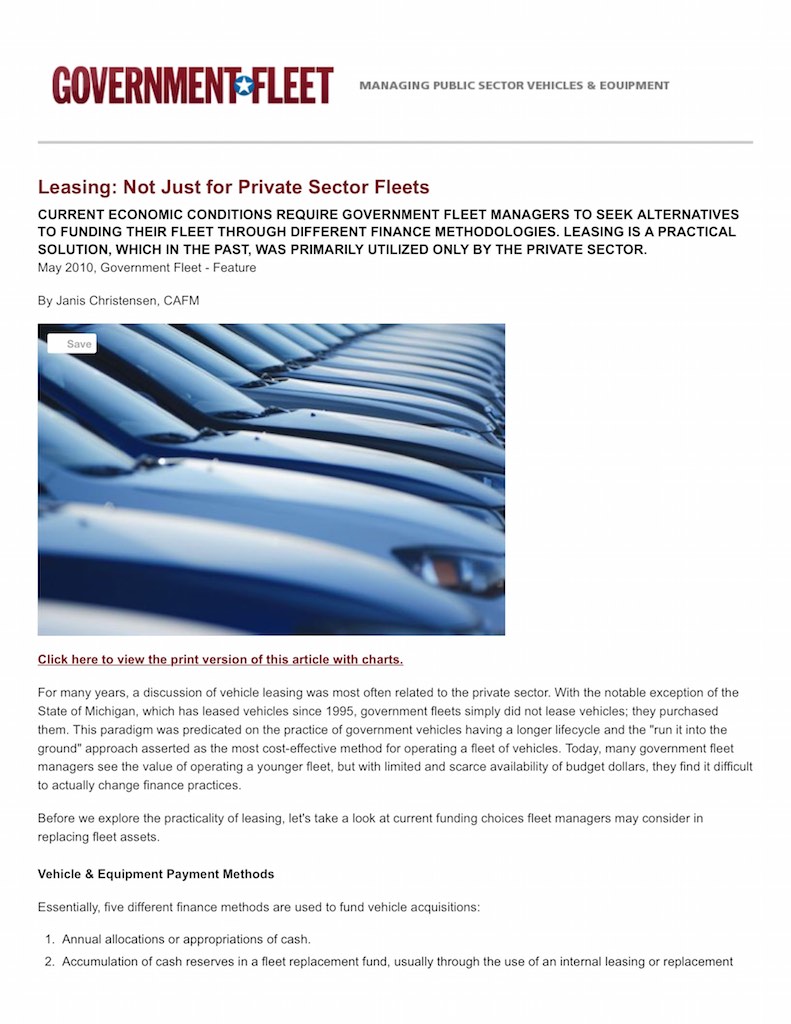Mercury is committed to providing fleet management professionals with valuable resources to assist them in their efforts in achieving industry excellence. As experts in every facet of fleet management, our team of consultants is frequently invited to discuss emerging issues, complex topics, and new solutions.
All of our articles are in an Adobe PDF file format. Adobe Acrobat Reader can be found at www.adobe.com. Get access to view and download articles, please register on our website. Registered guests can download, view, copy, and print files such as articles, presentations, and more. Registration is easy! Simply complete the Guest Registration Form .
Fleet Management Associations Turn to Mercury Associates to Keep Members In the Know
Where do key trade associations for public fleet managers turn when they need independent, unbiased fleet management advice and expertise? They rely on Mercury Associates Inc., the largest dedicated fleet consulting firm in North America. This case study explores how Mercury’s unique partnerships with the National Property Management Association (NPMA) National Education Seminar and the [...]
The Fleet Manager of the Future
Being a utility fleet manager today can be tough. How much tougher will it be tomorrow? With the constant advancement of technology, the increasing need for communications savvy and leadership acumen, ever-decreasing budgets, and an aging workforce being replaced by a younger cohort lacking institutional knowledge and experience, it’s a nail-biter of a time. So, [...]

Mercury Helps the City of Phoenix Chart a Course to Improved Fleet Performance and More Effective Cost Control
The City of Phoenix, Arizona owns and operates a fleet of more than 7,300 vehicles, ranging from small electric cars to fire trucks and D9 bulldozers. Developing budgets and charge-back models for this large and diverse fleet is the job of Gregg Duckett, Public Works Operations Manager, who also oversees the purchase and distribution of [...]
Customer Q&A with DTE Energy
Our team sat down with Michael Homan, Director of Fleet Operations at DTE Energy, to discuss what it's been like working with Mercury Associates on a number of fleet management improvement projects. Background: DTE Energy, the seventh-largest investor-owned utility company in the United States, operates a fleet of approximately 5,800 vehicles and pieces of equipment. [...]
5 Fleet Software Features You Should Be Using
Graphical user interface-based fleet management information systems are 20 years old. You are using yours for more than just record keeping, right?
10 Ways To Reduce Fleet Costs
Operating a cost-effective and efficient fleet often requires relying on the knowledge and expertise of fleet managers, but strategic direction from upper management also acts as a driving factor for such changes. Establishing key performance indicators derived from the fleet organization, vehicle assets, and vendors, permit effective fleet performance. This allows chief decision makers to observe trends as they evolve over time. This article provides 10 specific ways to reduce fleet costs along with ratings on each method’s potential to affect the organization’s overall profitability.
11 Approaches to Right-Sizing your Fleet
Traditional methods of determining the most cost-effective fleet size can be inefficient and inaccurate. Several alternative methods can be used to right-size your fleet without degrading the delivery of products, services, and transportation of employees and customers. As fleet managers know, a fleet’s cost is directly proportional to its vehicle total. Today, fleet professionals are under increasing pressure to reduce costs, and one of the most obvious ways to do this is to trim fleet size. Pressure from management wanting to eliminate vehicles on one side, and pressure from customers wanting to retain vehicles on the other usually puts the fleet manager in the seemingly unfair position as an “arbitrator” in this struggle. Thus, rightsizing methods must be fact-based, apolitical, rational, and defensible to all parties.
Conventional Fuel Management Strategies that Work
Through research, replacements, and preventive maintenance, fleet managers can get the biggest bang out of their fleet dollars. Fuel is one of the largest expenses associated with owning and operating a fleet, typically, second only to asset acquisition and depreciation. In the last decade, the average retail price of a gallon of unleaded gasoline has increased more than 126 percent, with average prices fluctuating as much as 39 percent from one year to the next. During this same period of time, the average retail price of a gallon of diesel fuel increased more than 160 percent, with the average price annually fluctuating as much as 33 percent.
Getting the Most from Your Fleet System
When implementing a fleet system, fleets commonly focus on basic features to meet core needs, missing such valuable tools as warranty management, shop scheduling, flat-rate labor times, parts inventory stocking, and reporting. Fleet management software is much like the human brain, and we only use a fraction of its potential. The most underutilized fleet systems tend to be those in which initial software setup, training, and use were designed to meet the operation's basic business requirements (i.e., just enough effort and resources to get things back to business as usual). This common scenario occurs when, during a system's implementation, the organization focuses solely on getting the system up and running to meet core business needs, such as work orders, parts inventory management, and basic reporting. The system then tends to remain in a remedial state with little emphasis on rolling-out features such as warranty management, shop scheduling, flat-rate labor times, part kits, part catalogs, inventory stocking levels, accident management, motor pool scheduling and administration, and management reporting.
Leasing: Not Just for Private Sector Fleets
Current economic conditions require government fleet managers to seek alternatives to financing their fleets with ad-hoc, cash appropriations. Leasing is a practical financing solution, which in the past, was primarily utilized by the private sector. However, many government entities are looking at leasing as a way to stretch their dollar. This article discusses how leasing can serve as a practical financial mechanism for the public sector to meet their fleet replacement funding needs.


